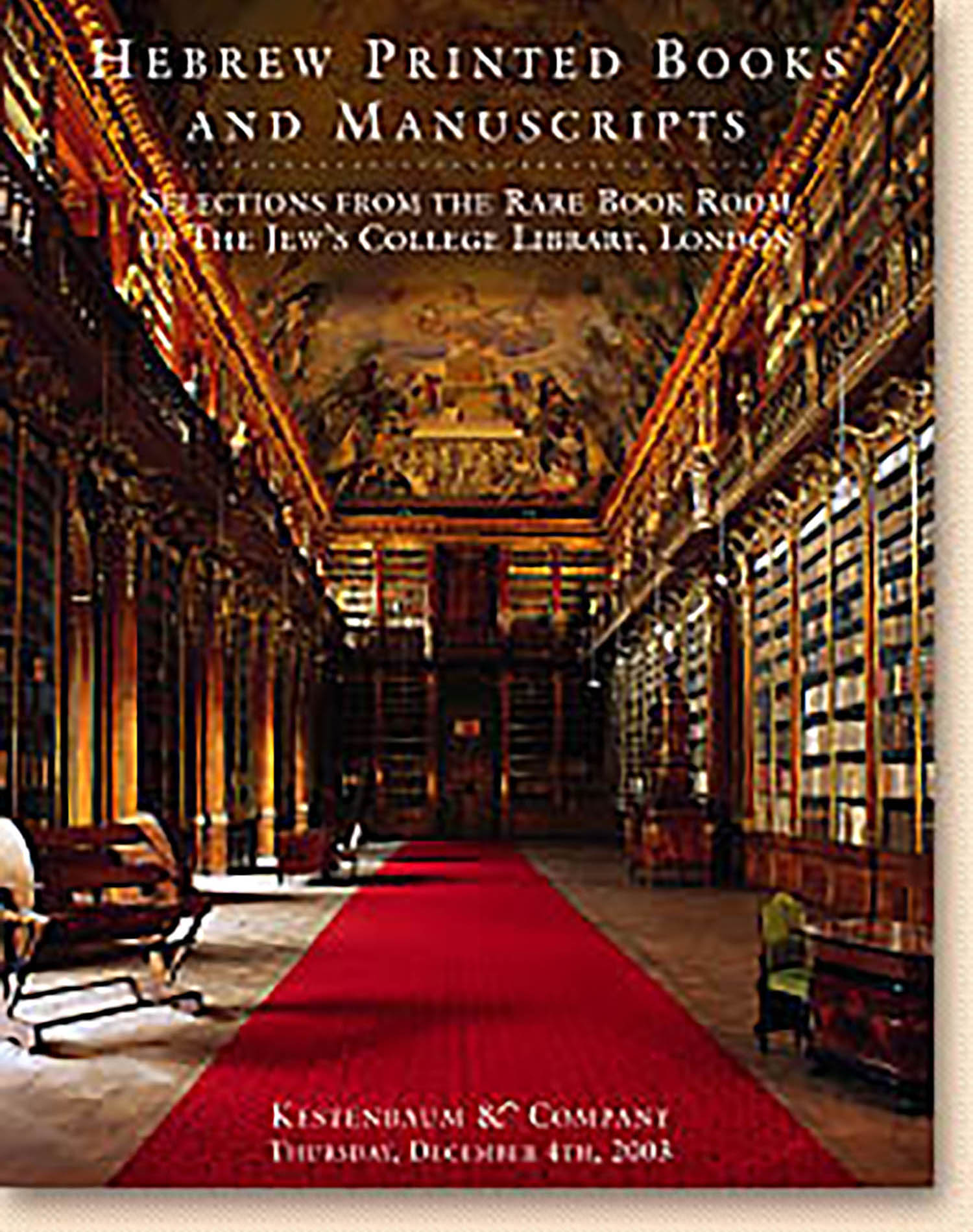Or Ado-nai

AUCTION 21 |
Thursday, December 04th,
2003 at 1:00
Kestenbaum & Company Holds Inaugural Auction of Hebrew Printed Books & Manuscripts at Their New Galleries
Lot 68
Crescas, Hasdai
Or Ado-nai
Ferrara: Abraham Usque 1555
Est: $3,000 - $5,000
PRICE REALIZED $2,500
Hasdai Crescas (d.1412?) was the disciple of R. Nissim ben Reuben of Gerona (Ra”N) he was one of the last great Spanish Jewish philosophers and set as his goal subjecting Maimonides’ Aristotelian philosophy to a rigorous critique. His Or Ado-nai is an exceptionally important work of Jewish philosophy. It has long been contended that in a sense, Crescas is the antipode to Gersonides: Gersonides sacrificed Divine knowledge for human free will, while Crescas produced a form of religious determinism. However, a careful reading of Crescas will show that his thoughts on this perennial philosophical problem are much more nuanced and complex.
In the realm of astrophysics, Crescas’ conception of infinite space is strikingly modern. His physics anticipated that of Newton; while parallels have been drawn as well between Crescas on the one hand, and Galileo Galilei and Giordano Bruno on the other. (Guttman, p. 259; p. 511, n. 250).
In the introduction to Or Ado-nai, the author writes that he intended to produce a halakhic work Ner Mitzvah, to compete with Maimonides’ Mishneh Torah, however this remained unaccomplished. (See EJ, Vol. V cols. 1079-85).
Recently, Rabbi Shlomo Fisher produced an edition of Or Ado-nai (Jerusalem, 1990) with a schematic breakdown of the chapters, a definite desideratum. See also H.A. Wolfson Crescas’ Critique of Aristotle (1929); J. Guttman, Philosophies of Judaism (1973), pp. 269-273
